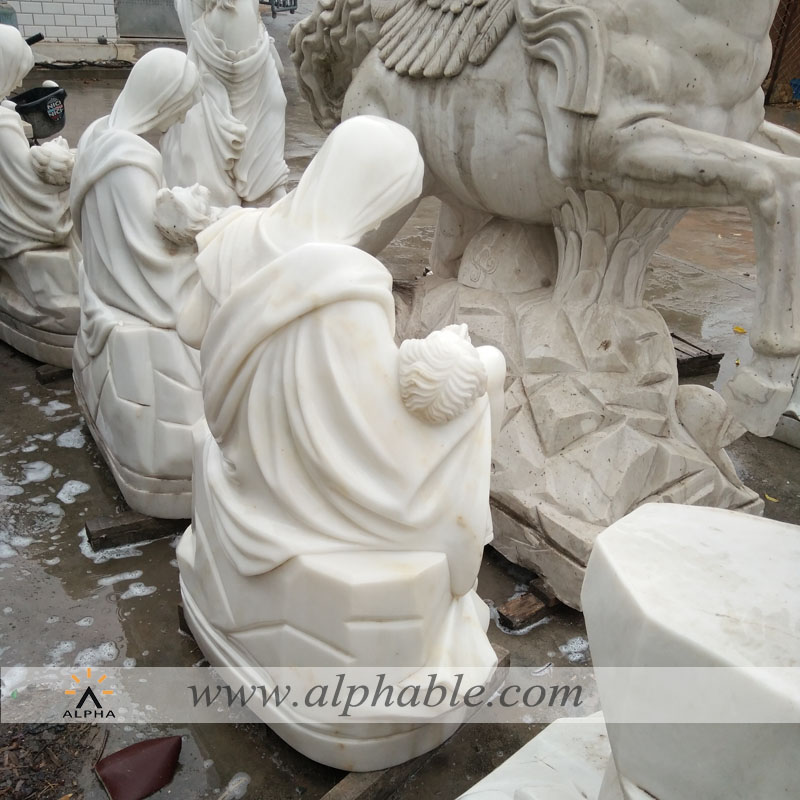

Marble Canova Pandora
Venus
statue SS-008
Art NO.SS-008
Size: Height 160cm or custom
Material: White marble
or custom as required
Processing way: Hand carving
MOQ:1 pcs
Shipping: World widely
shipping
Packing: firm wooden crate for marble statue using
OEM: Can make any style marble statue as photo or drawing.
Description:
This exquisite marble statue by Antonio Canova, known as either "Shy Venus," "Shy Pandora," or "Venus Italica." This masterpiece is sculpted in white marble and stands at an elegant height of 160 cm. This Venus Italica by Canova is a reproduction masterpiece of the original sculpted by Antonio Canova in 1805. This sculpture is known as Venus Italica or Canova's Venus and it belongs now to the Palatine Gallery in Florence.
Key Features:
Artist: Antonio Canova, a renowned Italian neoclassical sculptor celebrated for his masterful use of marble and ability to capture human emotion. Our skilled sculptors are specializing in carving Greek sculptures to ensure top craftsmanship.
Material: White marble, chosen for its purity and ability to reflect light, enhancing the Venus statue’s delicate features.
Dimensions: Standing 160 cm tall, this Venus statue commands attention while fitting gracefully into various spaces.
Design: The marble Canova Pandora shy Venus statue embodies Canova's renowned style, characterized by graceful, flowing forms and intricate detail. It captures the essence of either Venus or Pandora with a subtle, introspective quality that evokes both beauty and contemplation.
Artistic Significance:
Antonio Canova's work is celebrated for its precision and emotional depth, and this statue exemplifies these qualities through its elegant lines and serene expression.
This statue is a testament to the enduring appeal of classical art and will serve as a stunning addition to any collection or space.
For further details, please do not hesitate to contact us.
In Greek mythology, Pandora (ancient Greek, "gift", thus "giver of all", "all-endowed") was the first woman. As Hesiod related it, each god helped create her by giving her unique gifts. Zeus ordered Hephaestus to mould her out of Earth as part of the punishment of mankind for Prometheus' theft of the secret of fire, and all the gods joined in offering her "seductive gifts". Her other name, inscribed against her figure on a white-ground kylix in the British Museum, is Anesidora, "she who sends up gifts," up implying "from below" within the earth. According to the myth, Pandora opened a jar, in modern accounts sometimes mistranslated as "Pandora's box" (see below), releasing all the evils of mankind— although the particular evils, aside from plagues and diseases, are not specified in detail by Hesiod — leaving only Hope inside once she had closed it again. She opened the jar out of simple curiosity and not as a malicious act.